As a dog parent, you want the best for your furry friend. From their diet to their overall well-being, every aspect of their care is important. When it comes to feeding your dog, you may have heard about the benefits of olive oil. But, can dogs eat olive oil? In this complete guide, we’ll explore everything you need to know about dogs and olive oil.
Contents Overview
What is Olive Oil?
Olive oil is a natural oil made from pressing olives, the fruit of the olive tree. It’s a staple in Mediterranean cuisine and is widely used for cooking, dressing salads, and even in skincare products. Olive oil is rich in healthy fats and antioxidants, making it beneficial for both humans and dogs when consumed in moderation.
Nutritional Value of Olive Oil
Olive oil is prized for its nutritional value, containing mainly monounsaturated fats, which are considered heart-healthy. It’s also rich in antioxidants like vitamin E and phenolic compounds, which help combat inflammation and oxidative stress in the body. Additionally, olive oil contains small amounts of vitamins K and E. While it is high in calories, it’s low in saturated fats, making it a healthier option compared to many other cooking oils.
Is Olive Oil Safe for Dogs?
Yes, olive oil is generally safe for dogs and can even offer some health benefits. However, like any food, it should be given to your dog in moderation. Here’s what you need to know:
- Moderation is Key: While olive oil can be beneficial, it’s important not to overdo it. Too much olive oil can lead to digestive upset and weight gain in dogs.
- Choose the Right Type: Opt for extra virgin olive oil, as it is the least processed and retains the highest level of antioxidants and nutrients.
- Introduce Gradually: If you’re considering adding olive oil to your dog’s diet, start with small amounts and gradually increase to assess their tolerance.
Benefits of Olive Oil for Dogs
Let’s delve into the potential advantages of incorporating olive oil into your dog’s diet.
- Nutritional Value:
- Olive oil is rich in monounsaturated fats, which can contribute to a healthy coat and skin for dogs.
- It contains essential fatty acids, such as omega-3 and omega-6, which are crucial for maintaining optimal canine health.
- Additionally, olive oil is a good source of antioxidants, which can help combat inflammation and oxidative stress in dogs.
- Digestive Health:
- Olive oil may aid in digestion by lubricating the digestive tract, potentially alleviating constipation in dogs.
- Its anti-inflammatory properties may also help soothe gastrointestinal irritation and promote overall digestive health.
- Introducing olive oil into your dog’s diet in moderation can potentially reduce the risk of digestive issues such as colitis and inflammatory bowel disease.
- Joint Health:
- The anti-inflammatory properties of olive oil may help alleviate joint pain and stiffness in dogs with arthritis or other joint conditions.
- Regular consumption of olive oil may contribute to improved joint mobility and flexibility, enhancing your dog’s overall quality of life, particularly in older or arthritic dogs.
- Heart Health:
- Olive oil contains oleic acid, a monounsaturated fat that may have cardiovascular benefits for dogs.
- By promoting healthy cholesterol levels and reducing inflammation, olive oil may support heart health in dogs and help prevent cardiovascular diseases.
- Weight Management:
- Incorporating olive oil into your dog’s diet in moderation can provide a healthy source of calories and fat, which may be beneficial for underweight dogs or those needing to gain weight.
- Its satiating properties may also help dogs feel fuller for longer, potentially aiding in weight management by reducing the likelihood of overeating.
- Cognitive Function:
- The antioxidants found in olive oil may support brain health in dogs, potentially reducing the risk of cognitive decline as they age.
- Regular consumption of olive oil may contribute to improved cognitive function and mental acuity in dogs, promoting overall brain health and vitality.
Potential Risks and Precautions of Feeding Olive Oil to Dogs
Understanding the possible drawbacks can help pet owners make informed decisions regarding their dog’s nutrition and well-being.
- Digestive Upset:
- Introducing olive oil too quickly or in excessive amounts can lead to digestive upset in dogs.
- Symptoms may include diarrhea, vomiting, or abdominal discomfort.
- To minimize the risk of digestive issues, gradually introduce olive oil into your dog’s diet and monitor their response closely.
- Weight Gain:
- Olive oil is calorie-dense, and overfeeding can lead to weight gain in dogs, especially those with sedentary lifestyles or predispositions to obesity.
- It’s crucial to measure portions carefully and incorporate olive oil into your dog’s diet as part of a balanced meal plan.
- Consult with your veterinarian to determine the appropriate amount of olive oil for your dog’s individual needs and calorie requirements.
- Pancreatitis:
- Dogs with a history of pancreatitis or predisposition to the condition may be at increased risk when consuming high-fat foods like olive oil.
- Excessive fat intake can trigger pancreatitis, a painful and potentially life-threatening inflammation of the pancreas.
- If your dog has a history of pancreatitis or other pancreatic issues, consult with your veterinarian before introducing olive oil into their diet.
- Interference with Medications:
- Olive oil may interact with certain medications, affecting their absorption or efficacy.
- If your dog is taking medications, particularly those requiring administration with food, consult with your veterinarian to ensure that olive oil will not interfere with their treatment.
- It’s essential to disclose all dietary supplements and additions, including olive oil, to your veterinarian to prevent potential drug interactions.
- Allergic Reactions:
- While rare, some dogs may be allergic to olives or olive oil, leading to allergic reactions such as itching, hives, or gastrointestinal distress.
- Monitor your dog closely after introducing olive oil into their diet for any signs of allergic reactions.
- If you suspect your dog is having an allergic reaction, discontinue olive oil consumption and consult with your veterinarian for further guidance.
- Quality and Purity Concerns:
- Ensure that the olive oil you use for your dog is of high quality and free from contaminants or additives.
- Opt for extra virgin olive oil, as it undergoes minimal processing and retains more of its nutritional benefits.
- Avoid olive oils that contain additional ingredients, such as garlic or onion, which can be toxic to dogs.
How to Feed Olive Oil to Your Dog
When it comes to feeding olive oil to dogs, it’s important to do so safely and responsibly. By following certain guidelines and incorporating olive oil into your dog’s diet in a controlled manner, you can harness its potential benefits while minimizing the risk of adverse effects. Let’s explore some safe ways to feed olive oil to dogs.
- Start Slowly:
- Introduce olive oil into your dog’s diet gradually to allow their digestive system to adjust.
- Begin with small amounts, such as a teaspoon added to their food, and gradually increase the serving size over time as tolerated.
- Use High-Quality Olive Oil:
- Opt for high-quality, extra virgin olive oil, which retains more of its nutritional benefits and is free from additives or contaminants.
- Check the label to ensure that the olive oil is 100% pure and does not contain any additional ingredients that may be harmful to dogs.
- Measure Portions Carefully:
- Be mindful of portion sizes when adding olive oil to your dog’s food to prevent overfeeding and excessive calorie intake.
- Consult with your veterinarian to determine the appropriate amount of olive oil for your dog’s size, age, and activity level.
- Mix with Food:
- Mix olive oil thoroughly with your dog’s regular food to ensure even distribution and encourage consumption.
- This can be particularly helpful for picky eaters who may be hesitant to try new additions to their diet.
- Monitor for Adverse Reactions:
- Keep a close eye on your dog after introducing olive oil into their diet for any signs of adverse reactions, such as digestive upset or allergic symptoms.
- If you notice any negative effects, discontinue olive oil consumption and consult with your veterinarian for further guidance.
- Consider Meal Frequency:
- Incorporate olive oil into your dog’s meals on a regular basis, but avoid overdoing it.
- Depending on your dog’s individual needs and dietary requirements, you may choose to offer olive oil daily, a few times a week, or as recommended by your veterinarian.
- Consult with Your Veterinarian:
- Before making any significant changes to your dog’s diet, including the addition of olive oil, consult with your veterinarian.
- Your vet can provide personalized recommendations based on your dog’s health status, nutritional needs, and any existing medical conditions.
Precautions and Considerations
While olive oil can be beneficial for most dogs, there are some precautions to keep in mind:
- Allergies: Some dogs may be allergic to olive oil, so it’s important to watch for any adverse reactions when introducing it to their diet.
- Caloric Intake: Olive oil is calorie-dense, so be mindful of your dog’s overall calorie intake to prevent weight gain.
- Consult Your Vet: Before making any significant changes to your dog’s diet, consult with your veterinarian to ensure it’s appropriate for your dog’s individual needs.
When to Avoid Olive Oil to Dog
- Pancreatitis Risk: Avoid olive oil if your dog has a history of pancreatitis or is prone to the condition, as high-fat foods can trigger inflammation.
- Allergic Reactions: Steer clear of olive oil if your dog has shown signs of allergic reactions to olives or olive oil, such as itching or gastrointestinal distress.
- Medication Interactions: Avoid giving olive oil to dogs taking certain medications, as it may interfere with absorption or efficacy; consult your veterinarian for guidance.
- Excessive Fat Intake: Refrain from feeding olive oil if your dog’s diet already contains high levels of fat, as excessive fat intake can lead to weight gain and other health issues.
- Digestive Issues: If your dog experiences digestive upset, such as diarrhea or vomiting, after consuming olive oil, discontinue use and consult with your veterinarian.
- Quality Concerns: Avoid low-quality or adulterated olive oils that may contain additives or contaminants harmful to dogs; opt for pure, extra virgin olive oil instead.
Safe and Suitable Alternatives of olive Oil for Dogs
Coconut oil is a safe and suitable alternative to olive oil for dogs. Rich in medium-chain fatty acids, coconut oil offers similar benefits for canine health, including improved coat and skin condition, digestive support, and immune system enhancement. Additionally, fish oil, derived from sources like salmon or krill, provides omega-3 fatty acids that promote joint health, cognitive function, and heart health in dogs. Flaxseed oil is another alternative rich in omega-3 fatty acids, beneficial for skin and coat health, as well as reducing inflammation. When choosing alternatives to olive oil for your furry companion, ensure to introduce them gradually and consult with your veterinarian to determine the most suitable option based on your dog’s individual needs and health status.
Bottom Line
In conclusion, olive oil can be a healthy addition to your dog’s diet when used in moderation. From promoting a shiny coat to supporting joint health, the benefits of olive oil for dogs are numerous. By following the guidelines outlined in this complete guide, you can safely incorporate olive oil into your dog’s meals and enhance their overall well-being. Just remember to start slow, monitor for any adverse effects, and consult your vet if you have any concerns. With the right approach, you can nourish your dog from the inside out with the power of olive oil.




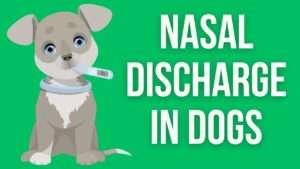
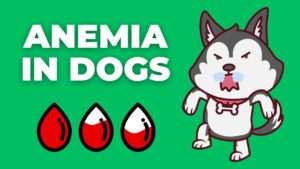



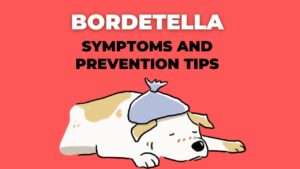


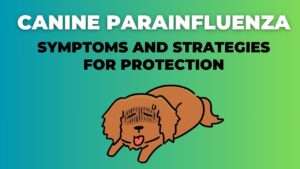
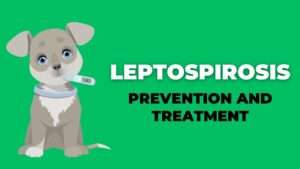














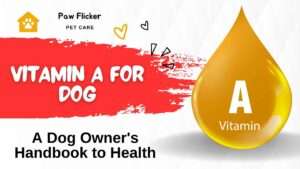







+ There are no comments
Add yours